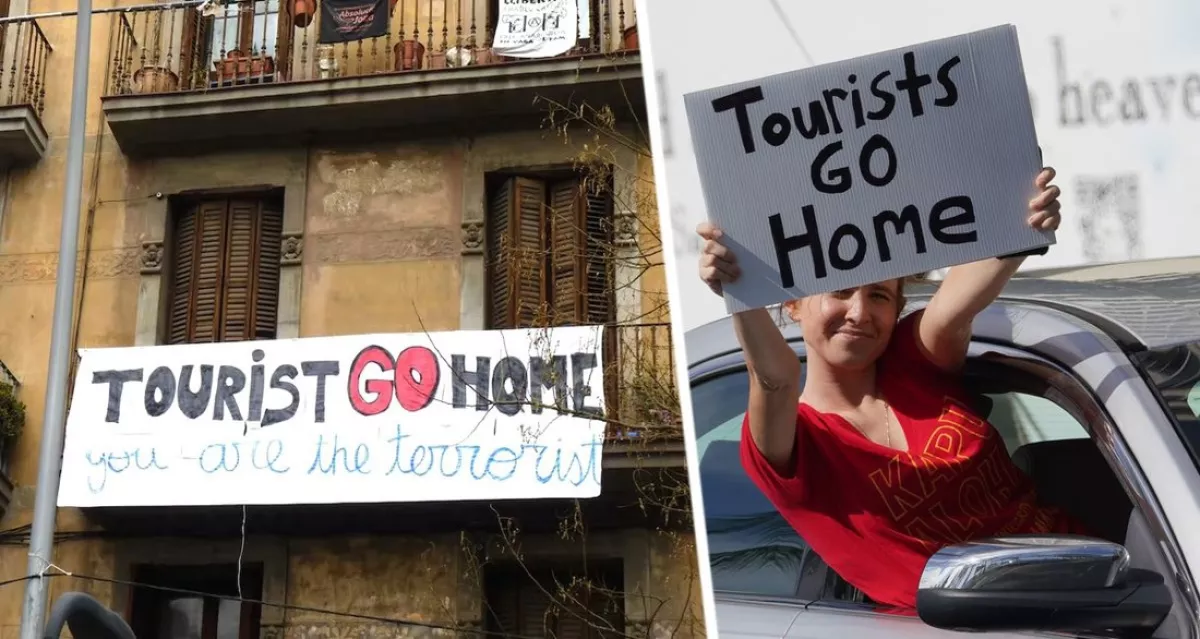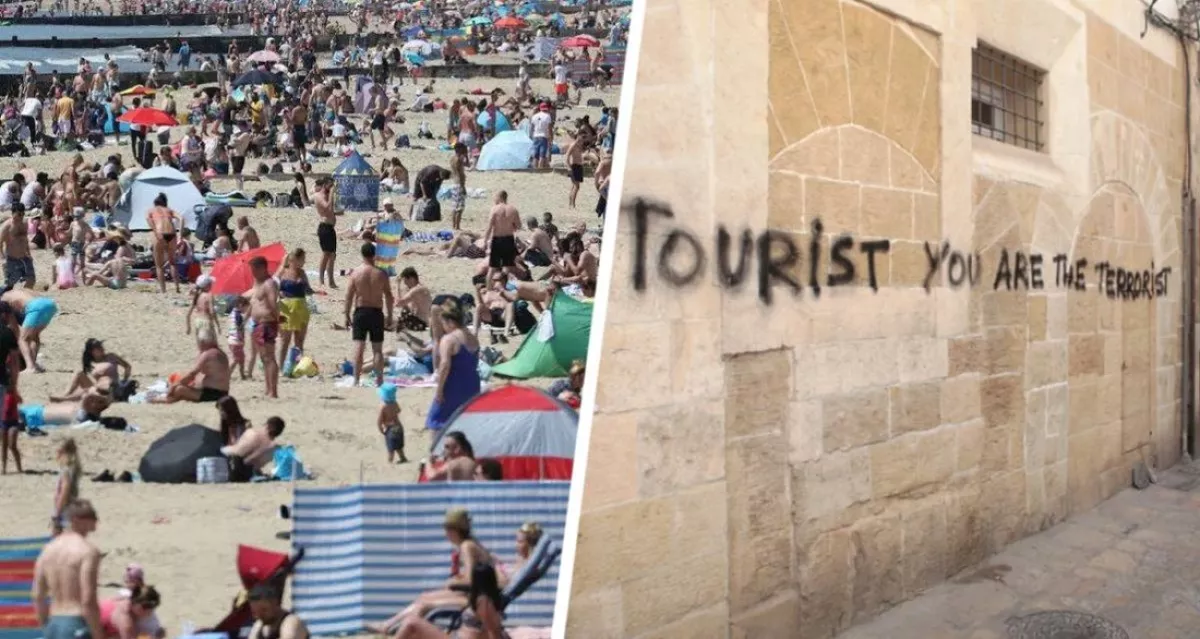Surge of anti-tourism sentiment in Europe “Go … home!”
As the summer season draws to a close, one topic has consistently dominated news headlines throughout the traditional vacation period for many Europeans and beyond. In fact, the discussion began even before the peak tourist season. The focus is on the situation in European cities that are globally recognized as major tourism hubs and take pride in that status. This trend was sharply captured in a Euronews headline from March of this year: “‘Go f*cking home’: The European cities where locals are fighting back against overtourism.” Bold and uncompromising, isn’t it?
Similarly, other reputable sources have reported on the appearance of stickers in city streets insulting "stinking" tourists. Although the focus has largely been on Spanish regions, known for attracting tourists from around the globe and celebrating their presence for decades, the anti-tourism sentiment has also emerged in Belgium, the Netherlands, and—well, it’s a long list of European countries and cities. Interestingly, this backlash is directed not at "foreign" migrants but at fellow Europeans and Americans. Quite an intriguing phenomenon, isn’t it?
However, there’s another aspect to consider. For instance, Spain’s National Institute of Statistics reveals that 8 out of 10 new residents moving to Malaga are foreigners. Meanwhile, nearly 650 tech companies, including Google, have established offices in the city, drawing new professionals from various countries. So, one might wonder, what does this have to do with tourists?

A similar issue has arisen on Tenerife in Spain, where water shortages have suddenly become a problem. Authorities attribute this to a significant increase in water consumption in tourist areas, claiming it disrupts the usual irrigation for agricultural land. It’s curious—didn’t tourist zones always use more water than urban areas? This question is rhetorical, of course. If that’s the case, tourists can’t be the sole culprits.
Despite this, many tourist destinations have shifted their focus from promoting visits to actively limiting tourist numbers. How did it come to pass that almost all European cities suddenly declared: “Down with tourists, let’s stew in our own juices”? And, intriguingly, is there any guarantee that, after such strong statements, some of these very disgruntled residents won’t be the first to rush to travel agencies to book trips to nearby (or not-so-nearby) cities?
Therefore, this situation might have a different underlying motive that many are reluctant to reveal. Europeans have faced, initially in a cautious manner and later with increasing intensity, calls from city authorities in popular tourist destinations to implement what’s known as a “tourist tax.” Such a tax could stifle opportunities for small and medium-sized businesses during tourist seasons, even though this sector has long been a vital source of income for many families. But does this concern the oligarchs who are trying to exert control through city authorities?
In this context, some experts argue that the push for a new "tourist" tax is not accidental. For example, Amsterdam has already implemented measures like limiting short-term rentals for tourists to one month and restricting the opening of new souvenir shops. There are also discussions about redirecting tourist ships to ports outside the city and banning tourist vehicles from historical centers. Venice has even gone so far as to ban cruise ships from its canals, citing the threat of environmental damage. And this threat—did it just appear out of nowhere?

Nevertheless, experts who advocate the theory of "artificially inflating" the issue suggest that a closer look at the recommendations and proposals reveals that they are less about genuinely addressing residents' concerns and more about allowing problematic aspects to persist—essentially, for a price: "Pay up, and the problems disappear." This approach overlooks the fact that rising costs could lead to fewer tourists and result in significant income loss for small and medium-sized businesses.
The perceived "artificiality" of the tourist issue is further highlighted by the practical exclusion of a large number of Russian tourists from popular European resorts, where they previously represented a significant portion of visitors. This creates a paradox in the growing anti-tourism sentiment. With many Russians no longer visiting popular European destinations or booking trips to various cities, one would expect to see more availability in these destinations for tourists from other countries. Instead, the reality is quite different: "No vacancies."
According to some experts, the recent developments in the European tourism sector are not a mere "spontaneous uprising." Instead, they are being deliberately stoked by interested parties who, to borrow a line from Mephistopheles in Gounod’s opera Faust, are "fighting for metal." They are pursuing their own interests with little regard for the impact on their fellow citizens, for whom the tourist season has long been a vital source of income, significantly supporting their family budgets for much of the year.








